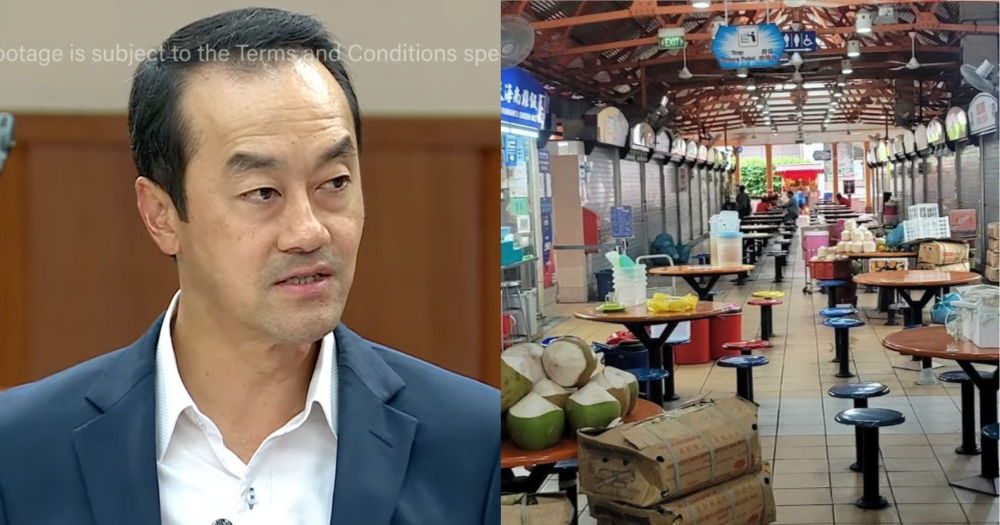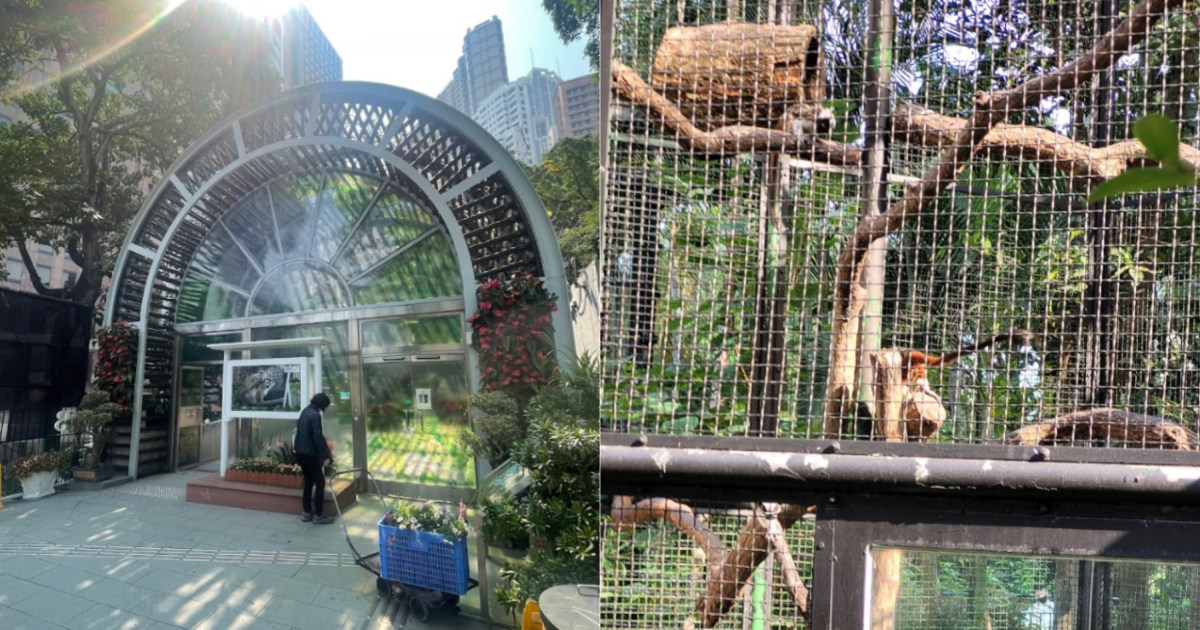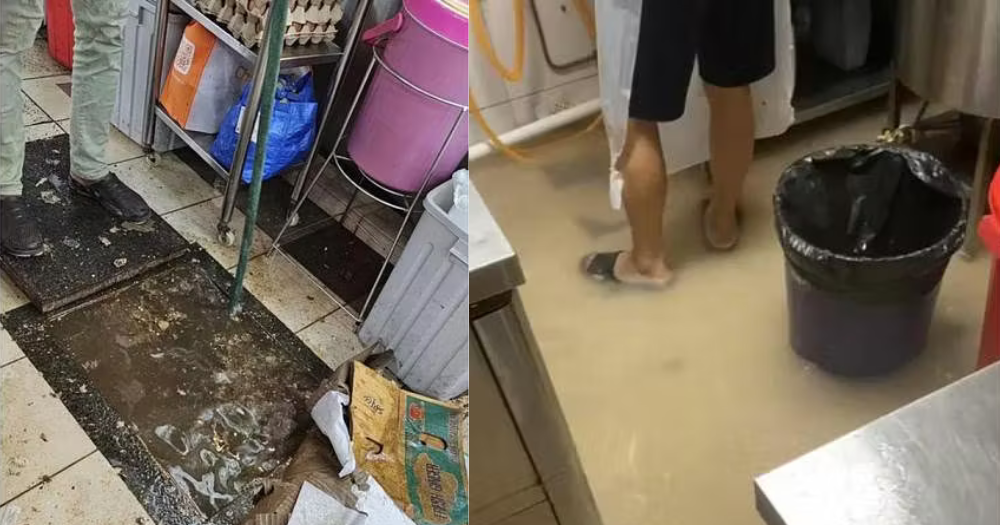Hawker stall owners can seek consent to hire long-term visit pass holders as stall assistants from 2025
The measures will help safeguard and preserve the local identity of Singapore's hawker culture, Koh said.

From Jan. 1, 2025, stallholders operating at hawker centres and markets will be allowed to hire any Long Term Visit Pass (LTVP) or LTVP-Plus holders with a Letter of Consent (LOC) or Pre-approved LOC as stall assistants.
Currently, only Singapore Citizens and Permanent Residents can be stallholders or work as stall assistants in hawker centres managed by NEA and NEA-appointed operators.
The National Environment Agency (NEA) will provide more information to interested stallholders in due course.
Senior Minister of State for Sustainability and the Environment Koh Poh Koon revealed the news while replying to a question raised by Radin Mas SMC Member of Parliament (MP) Melvin Yong Yik Chye in a parliamentary sitting on Oct. 14 regarding the rent for hawker stalls tendered out in the last two years.
Policy to address manpower challenges
"To address manpower challenges, NEA has provided support through measures such as the Productive Hawker Centres (PHC) programme and the Hawkers' Productivity Grant (HPG) to help stallholders improve productivity and reduce reliance on manpower," said Koh, addressing the various pressures faced by hawkers such as raw material costs and manpower costs.
"Under the PHC programme, NEA provides subsidies to stallholders where centralised dishwashing service (CDW) is adopted hawker centre-wide," the agency explained in a separate media statement.
The HPG supports stallholders in purchasing automation equipment and technological solutions to improve productivity.
Surveys conducted by the NEA found that manpower was the second highest cost component for stallholders after raw materials.
"To provide additional support to stallholders at hawker centres managed by NEA or NEA-appointed operators, we will further relax our policy to allow hawkers to hire LTVP or LTVP-Plus holders with Letters of Consent (LOC) or Pre-approved LOCs to work as their stall assistants," said Koh.
The policy will be effective from Jan. 1, 2025.
These measures help to safeguard and preserve the local identity of Singapore's hawker culture, Koh added.
Later on, when asked by NCMP (Non-Constituency Member of Parliament) Leong Mun Wai whether the government has considered liberalising the manpower policy to allow work permit holders to work in hawker stalls, Koh said, "Not at this moment, because we still want to preserve the Hawker culture, which is largely run by local Singaporeans."
"While some stalls at popular locations have attracted higher bids, such tender prices are not the norm": Koh
After the first tenancy term of three years, tendered rents are adjusted towards an assessed market rent determined through independent professional valuation, said Koh.
NEA lets out vacant hawker stalls through monthly tender exercises, which are transparent and fair, Koh noted.
"Since 2012, NEA has removed reserve rent and does not set a minimum bid price for hawker stall tenders," Koh said, adding: "As such, tenderers can secure stalls at lower-than-market rent for the first tenancy term. This would not be attainable under a model where stalls are allocated at fixed rental rates."
About one in five cooked food stalls were awarded at tender prices at or below S$500 a month in 2023, Koh noted.
The median successful tender price for cooked food stalls across hawker centres was about S$2,000 in 2022 and S$1,800 in 2023.
"While some stalls at popular locations have attracted higher bids, such tender prices are not the norm," said Koh.
"NEA is reviewing relevant policies at hawker centres to ensure that the system remains effective while keeping hawker food prices affordable," Koh stated.
High rental prices at hawker centres
After Koh's answer, Yong asked a supplementary question regarding a possible ripple effect of increased food prices within the same hawker centre.
He explained that veteran hawkers he spoke to mentioned this phenomenon of new entrants bidding high rental prices, and therefore, they have to charge higher food prices to make up for the high cost.
As a result, other hawkers in the same hawker centre would see this as a signal that they can also increase their food prices, causing a price increase ripple within the same hawker centre, said Yong.
Yong asked if the ministry tracks if food prices have increased in hawker centres where that had been an abnormally high rental bid.
Koh responded that in a price-competitive market where multiple stores offer food at different prices and different choices for consumers, the market would consider the rental costs.
"In other words, a person who bid it for a high rental price at the store will have to take into account what consumers can bear as well so that he can keep his business viable," Koh said.
"I think we have to allow the market to weed out those who are not competitive or are unable to offer food at an affordable price where consumers will see this as good value for money," Koh explained, adding: "At some point, the best operator with the best offering in terms of taste and quality of food, with a price that consumers can bear, will be the one that eventually can succeed."
In response to Yong's suggestion of putting some form of alert to help bidders be more considered in their prices when bidding for hawker stall rentals, Koh noted a possible way would be putting more information on the NEA website so "a potential bidder would actually be more cognisant of the kind of price points that he's competing against fellow store owners in the same hawker centre."
NEA is also studying other support measures for hawkers and will share the details when ready.
Top image via MDDI Singapore/YouTube and Google Maps
MORE STORIES




















